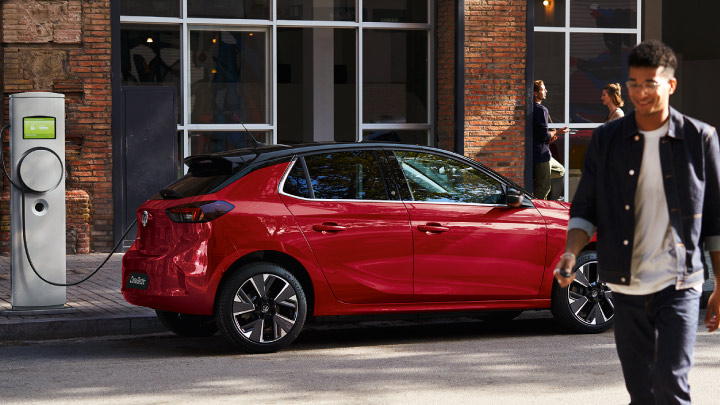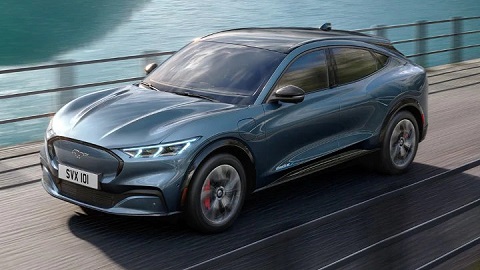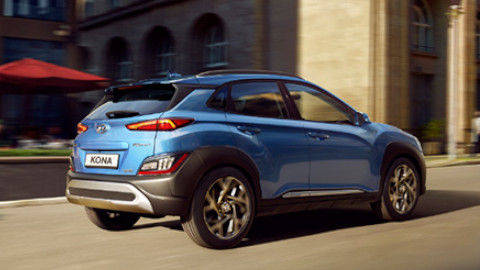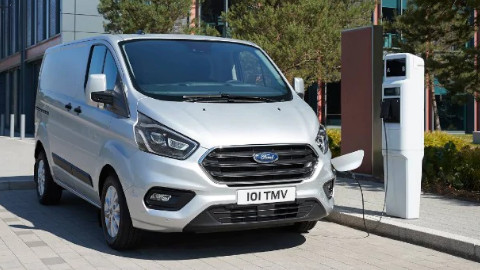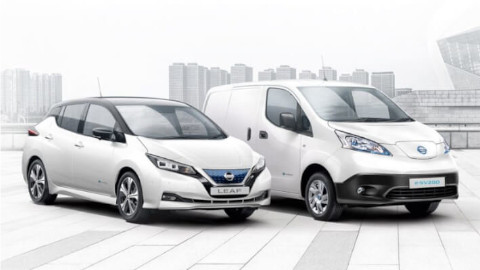Charging your hybrid or electric car
Hybrid and electric cars have had a surge in popularity in recent years due to their eco-friendly approach and often-lower running costs. But before you make the switch, there are plenty of factors to consider, with one of them being charging.
While mild hybrid and full hybrid vehicles can charge themselves while you drive, plug-in hybrid and all-electric options will need to be plugged in to a power source for you to benefit from the best of economy and all-electric range.
With thousands of public charging points nationwide and convenient home charging solutions for you to choose from, recharging your car is simple, allowing you to enjoy your journey without the stress of range anxiety.
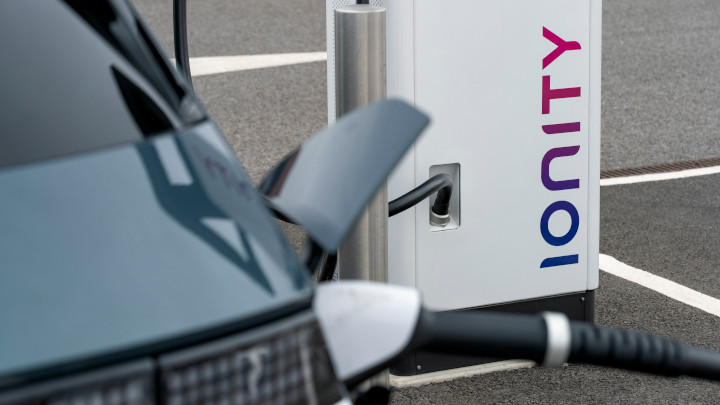
Different types of charging point
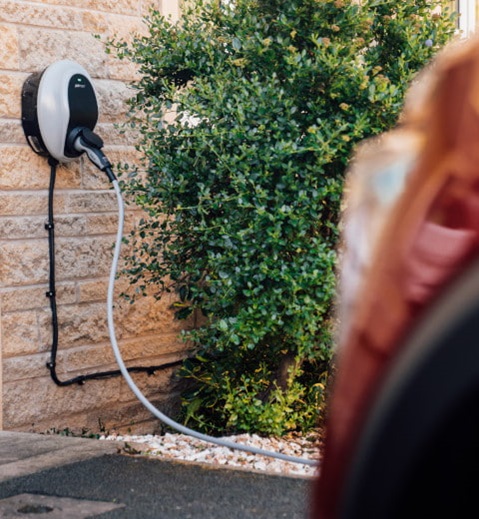
Slow
Slow chargers usually take between 6 and 12 hours for a full charge and offer speeds of up to 7kW. They're typically used within homes or locations where vehicles are often parked overnight.
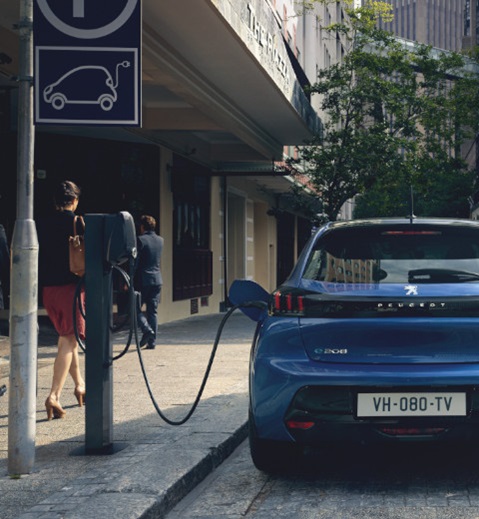
Fast
Fast chargers usually take between 2 and 4 hours for a full charge and offer speeds between 7kW and 22kW. They're typically found at locations where vehicles are parked for a few hours.
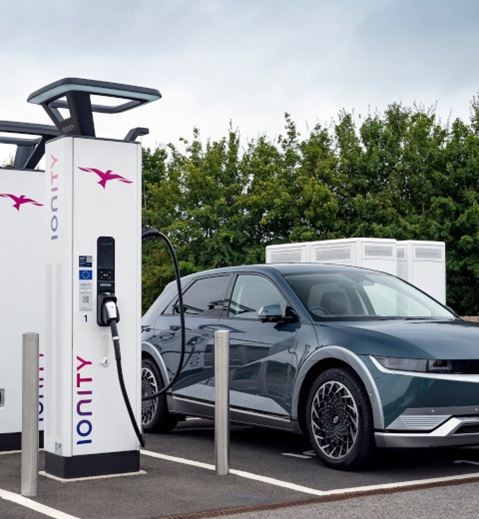
Rapid
Rapid chargers usually take between 20 and 60 minutes for an 80 percent charge and offer speeds between 43kW and 50kW. They're typically found where vehicles are parked for a short break.
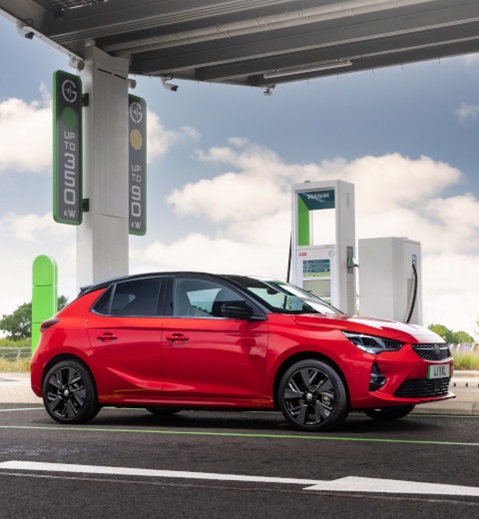
Ultra Rapid
Ultra Rapid chargers offer up to 200 miles in as little as 30 minutes, and provide speeds of 50kW and above. Ultra rapid charging is only available on certain makes and models.
Find your nearest charging point
Recently the amount of charging stations located around the UK has increased, with over 30,000 charging points available, charging your vehicle whilst out and about is super simple.
Many public EV charge points are free to use, however, the majority of fast and rapid chargers do charge a fee. There are websites and apps that can assist you with finding an electric car charging station.
Alternatively, EV charge points can be installed at your home, but often require you to have off-street parking. Charging your vehicle at home is the most convenient and cost-effective method, and Government grants may be available to support with the installation of home EV charge points.
The time it takes to fully-charge an electric vehicle varies depending on the vehicle's battery size and the speed of the charging point.
What affects range?
There are a range of factors that impact your car's all-electric range, including:

Weather Conditions
Colder weather has a detrimental effect on your all-electric range due to the additional energy needed to get the car up to operating temperatures.
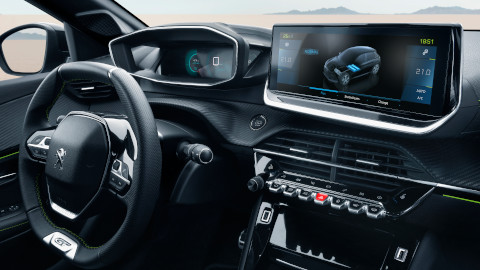
Energy Use
The more energy you use to power systems such as air conditioning, the lower your all-electric range will be.
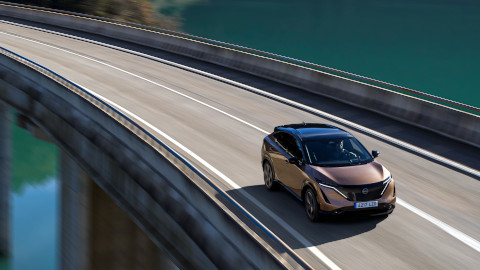
Payload and Speed
Carrying heavier loads or more people, and travelling at higher speeds, can reduce how far your car can travel.
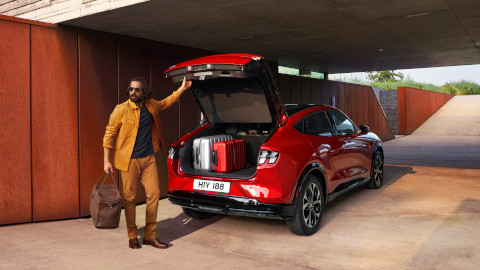
Battery Degradation
Over time, your battery's performance will decline, but extensive warranties and proper servicing and maintenance can reduce its effects.
Frequently Asked Questions
Public charging points can be found in a variety of locations, but you'd typically find them in locations such as car parks, supermarkets, shopping centres, and motorway service stations.
Plenty of cars have the ability to plan charging points into your journey if and where required, ensuring you arrive at your destination with no worry about EV range. Alternatively, you can use the map seen above to find your nearest charging point.
Put simply, yes. Charging your plug-in hybrid or electric car is very straightforward thanks to a range of charging solutions. You're able to charge at home using a 3-pin domestic socket or dedicated wallbox, or visit public charging points for quicker charging speeds.
We've written this handy guide to provide more detail regarding the charging process.
Charging prices can vary depending on a variety of factors such as the charging point used and the cost of electricity during that period.
Charging your vehicle at home through the night is the cheapest way of doing so, as your energy provider may offer preferential rates. Much like the cost of petrol, prices tend to increase in popular locations such as motorway service stations, but charging will usually cost significantly less than filling a car or van up with petrol, regardless of where you charge your car.
Paying to charge your car is easy, but it can differ slightly depending on which charging point you use. Each charging point will provide its own instructions, usually found on the meter itself.
Contactless machines and card readers are typically found at each location, so you can pay using your normal credit or debit card. The majority of charging providers offer mobile applications too, allowing you to pay for your charge through the mobile application. If you choose to charge at home, the cost will be integrated into your energy bill.

